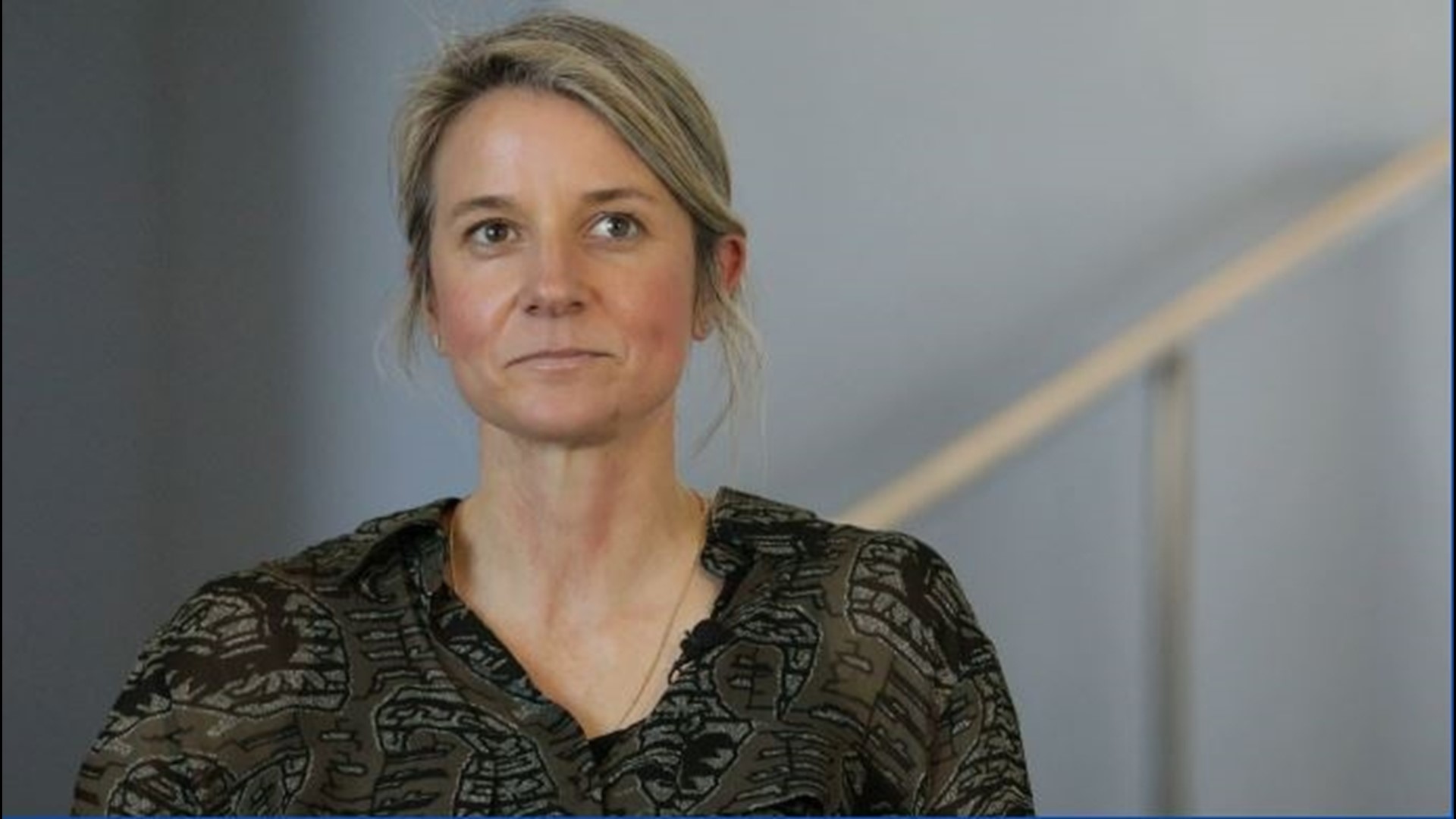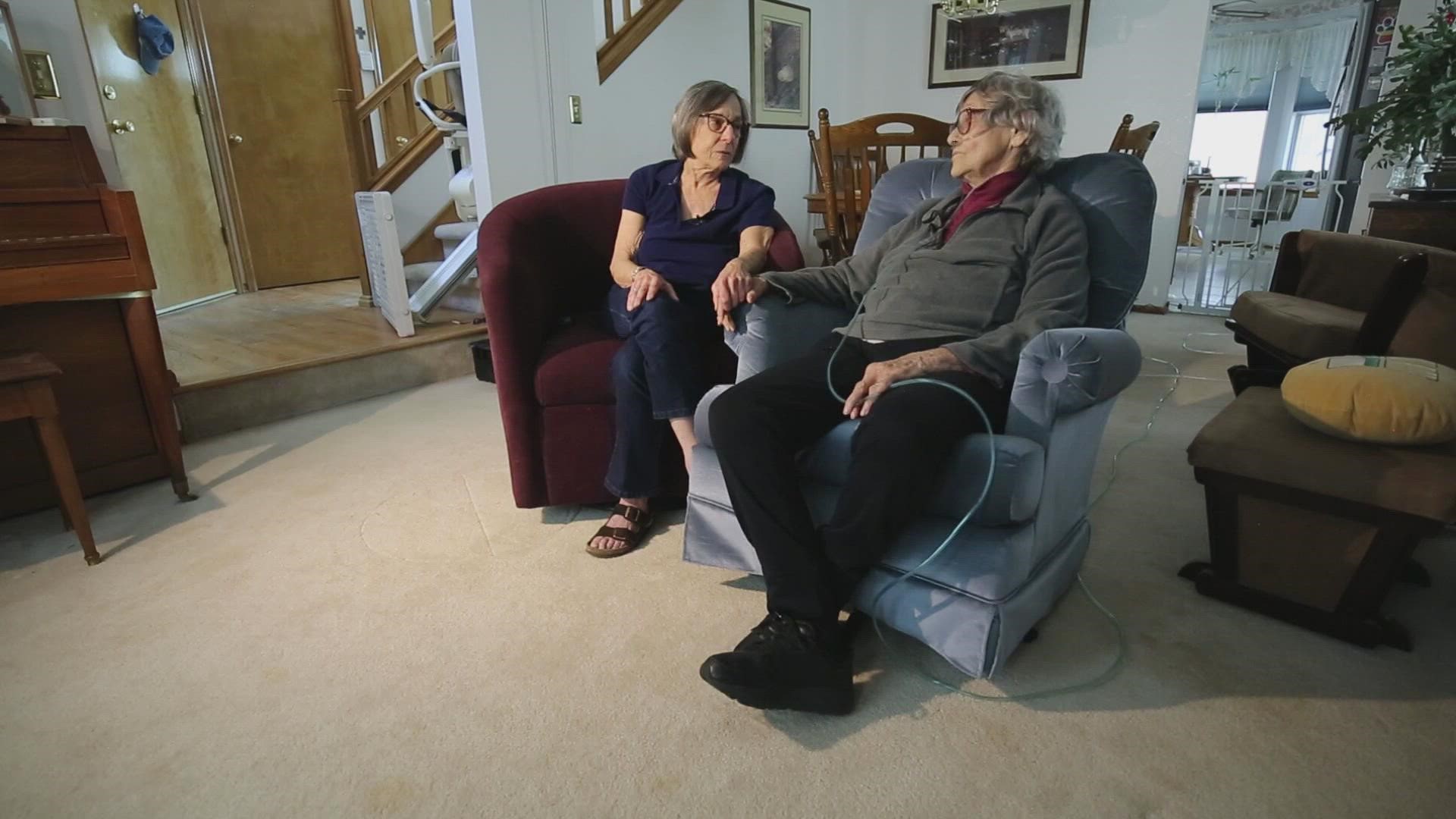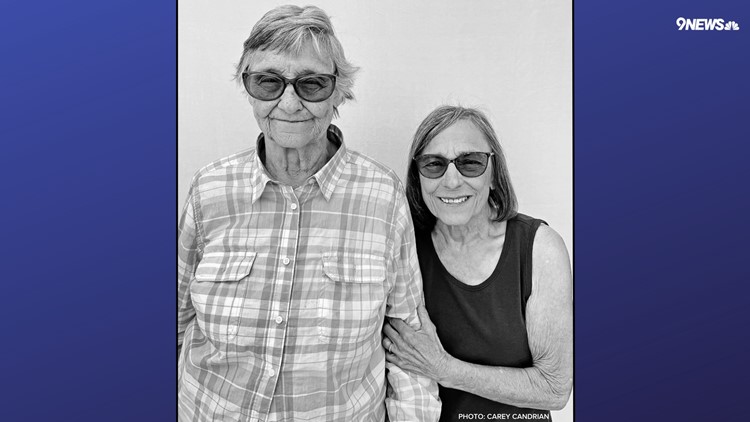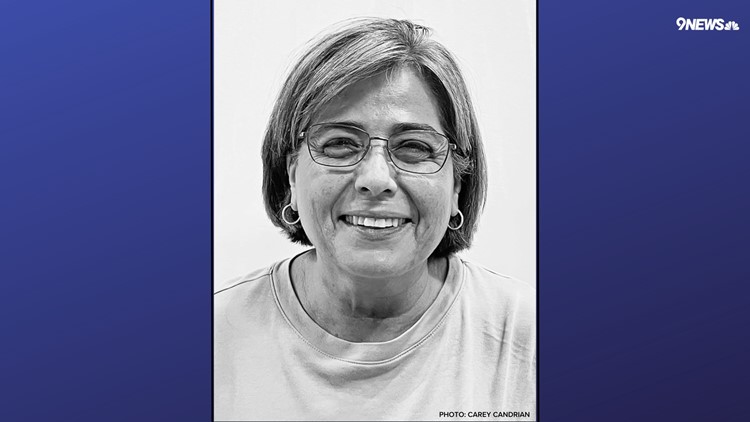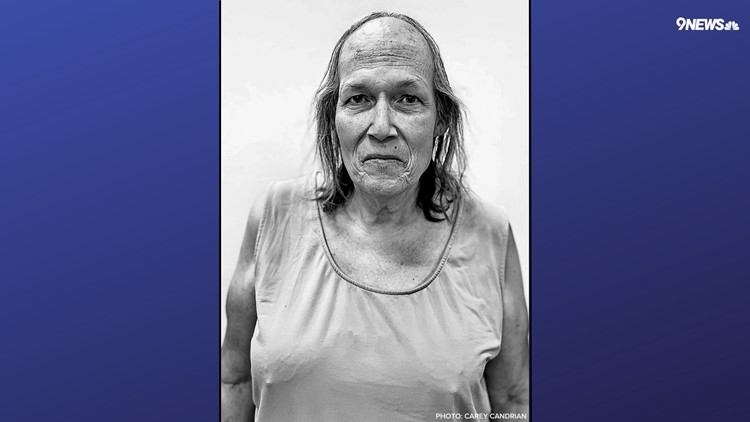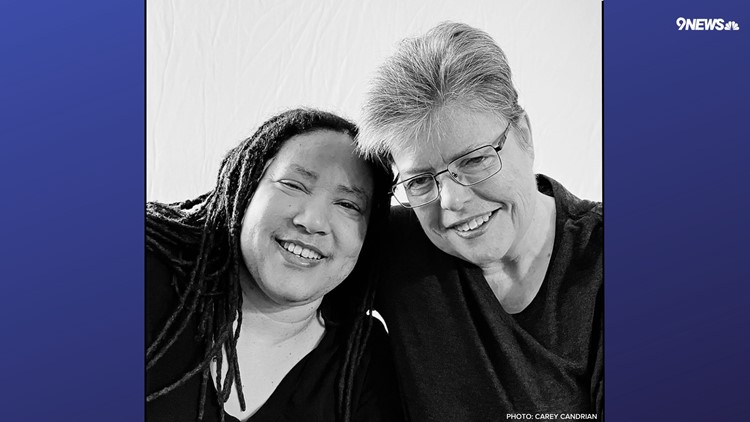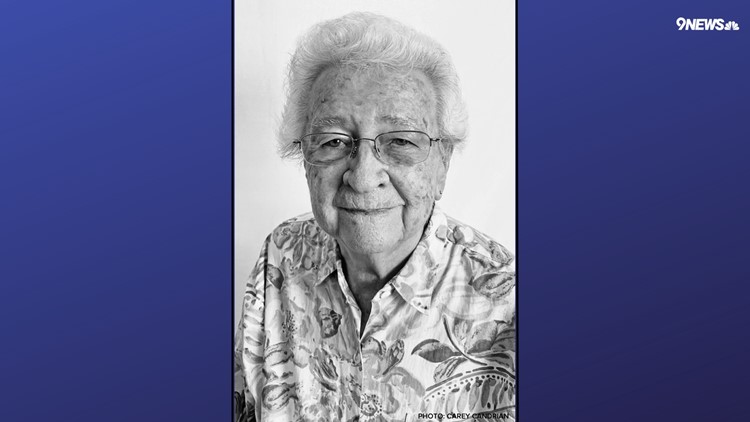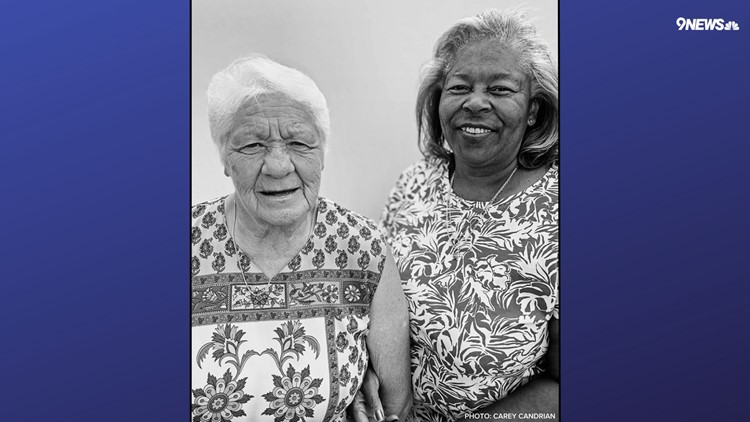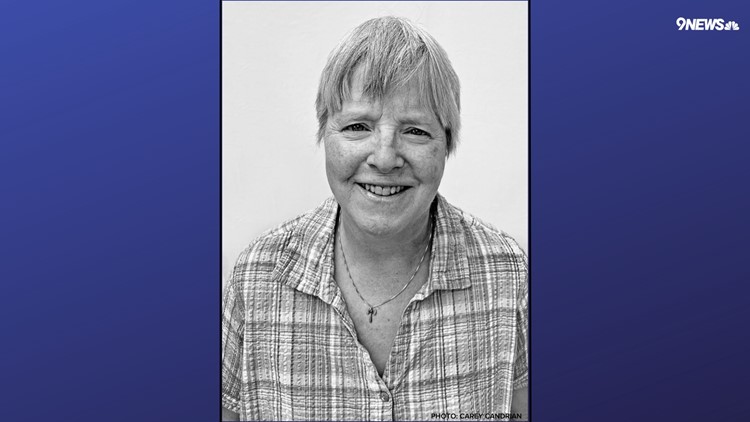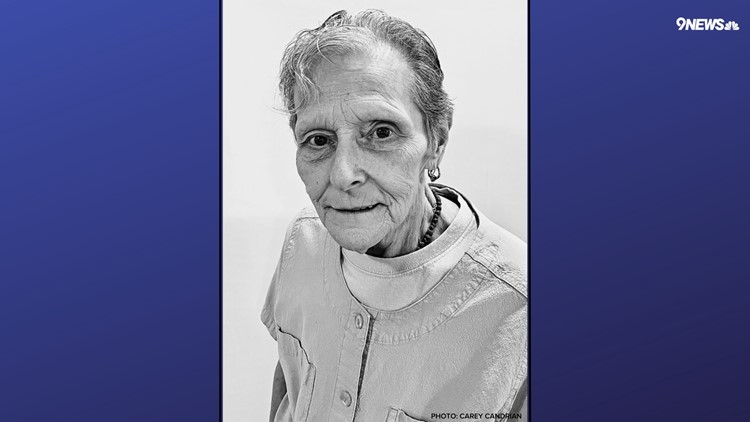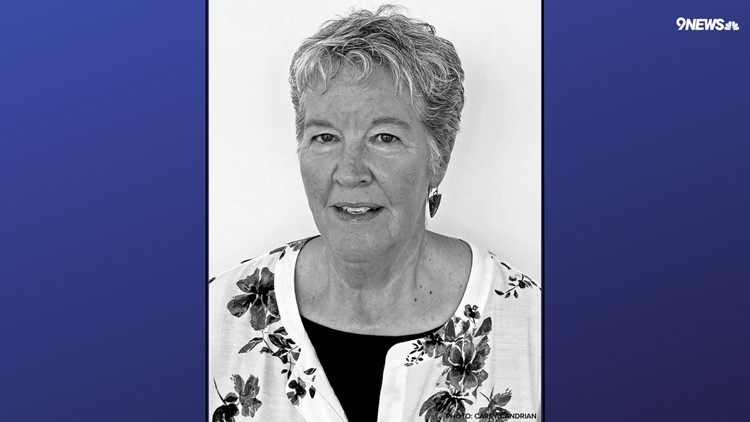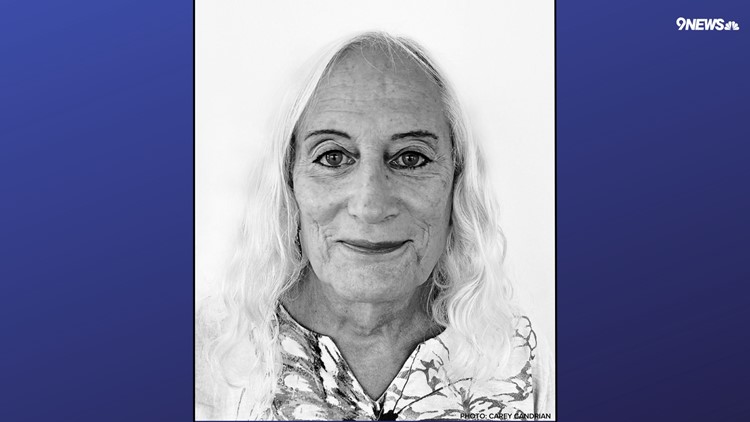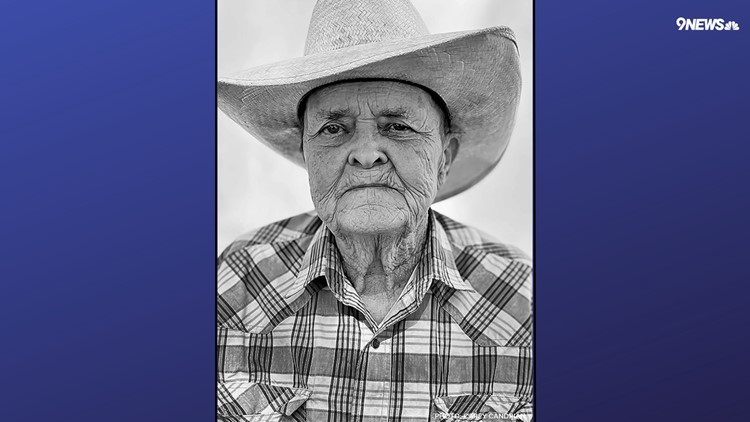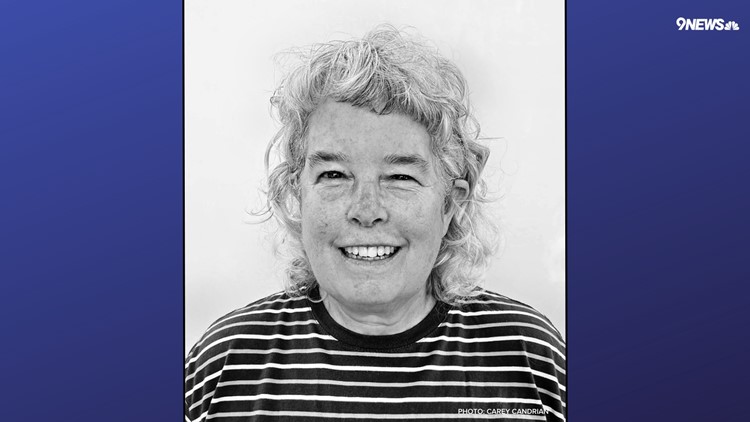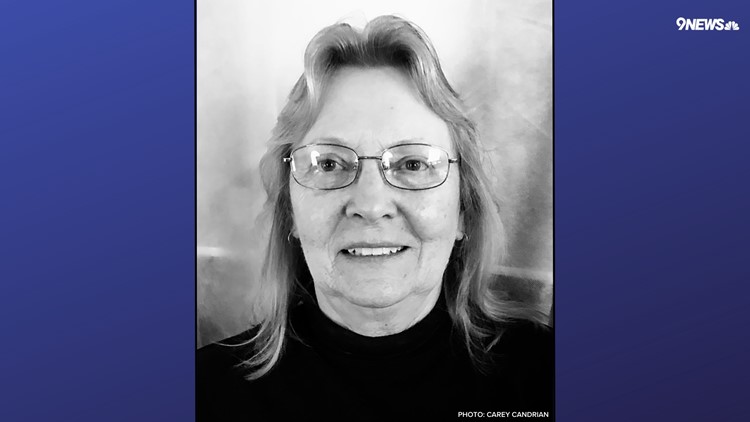AURORA, Colo. — A researcher at CU Anschutz has landed a major grant to take a closer look on the disparities of care for elderly people in the LGBT community.
Carey Candrian has spent more than a decade digging into this issue. Recently, she was awarded a five-year grant from the National Institute of Health's National Institute on Aging to improve care for LGBT older adults in hospice.
Candrian first spoke to 9NEWS in May 2021 when she opened an exhibit at CU Anschutz focusing on the faces behind the statistics. Candrian has interviewed more than 100 elderly individuals within the LGBT community. She shared with 9NEWS how the research she will do with the NIH could change healthcare for good.
What do you hope to accomplish with this grant?
Candrian: The overarching goal of the grant is to improve the way LGBT people are cared for throughout life and especially at the end of life and there’s two main goals -- first is to routinely collect sexual orientation and gender identity data and the second part, which is really the bigger part, is to actually train hospice professionals on how to collect this data in a way that is safe and inclusive so that we actually get the information and it can actually improve the way LGBT people are cared for at the end of life.
Why is it so important to collect this data?
Candrian: We know discrimination is happening all over the healthcare ecosystem and especially in hospice. For example, there was a survey in 2020 of over 850 hospice professionals and 46% of the hospice staff reported directly observing discriminatory behavior of LGBT patients, things like rolling eyes when patients were holding hands to not involving the partner in major decisions and even disregarding patient wishes.
So a key part of getting this data is actually being able to do something about these devastating disparities because right now we have awful data on the LGBT community, which makes it really difficult to do something meaningfully on a system level to address these disparities.
The second piece as to why this data is so important is without them, which is happening a lot, we’re actually caring for people with incomplete information and there’s significant consequences when we don’t have complete information on patients because if you don’t have complete care and this can lead to inequitable care particularly end-of-life care for LGBT people without complete information.
When we don’t have this information it means we don’t have complete information. So that means we don’t know who this patient is, who they love, who they want in the room, what they want, what they don’t want and these have consequences at the end of life.
I think the biggest thing is not being able to talk about who you are and who you love is an inherent violation of dignity for all people.
Is your research hoping to change the way hospice agencies care for LGBT individuals?
Candrian: So this has been a long standing problem for a while is how to actually get sexual orientation gender identity (SOGI) data in a way that patients feel safe and in a way that people actually know what to do with the information.
So what I’m doing is I’m taking a very community-based and community-led approach and so that means I’m engaging people close to the issue. By that I mean the first step is really interviewing hospice professionals and asking them what is getting in the way of getting this information of asking these questions? What is getting in the way of them caring for LGBT patients in a way that is respectful and compassionate? Then the second part will be to actually engage older LGBT adults. You know, how would they want these questions to be asked in a way that they would feel comfortable and safe to disclose so I think that’s one of the innovations of this project is that it actually really involves the people that are closest to the issue and having the solution be informed by the community and those actually doing this work.
There has been tremendous work around SOGI which is terrific and I think the other part, which is what I’m trying to do with this project, is really address the cultural issue because for older LGBT adults who grew up when it was extremely dangerous, when it was unsafe, still is unsafe to be gay in a lot of places and trans this culture's a big deal. They have these engrained habits of silence of safety and there’s good reasons for them to stay quiet. So without addressing this cultural piece I think we can have all kinds of legislation and policy but until we really address, you know, how to actually do this in a way people actually feel comfortable both on the hospice professional side and the patient side – we’re not going to actually be able meaningfully move things in a way they need to be moved.
What's one word you would use to describe this kind of work?
Candrian: Perseverance. It’s easy to get discouraged by this work and it’s also incredibly meaningful to do this work and so I think there’s probably a level of gratitude that would be another word but I think it requires a lot of perseverance to do this work.
The Eye to Eye exhibit will be displayed at the Bob Raglan Branch Library from March 1 - March 25. Anyone can come and take a look at Candrian's work during normal library hours.
> Video below aired in May 2022: CU Anschutz exhibit highlights disparities in care for LGBTQ elders:
New CU Anschutz exhibit 'Eye to Eye' puts focus on older LGBTQ women
SUGGESTED VIDEOS: The Culture Report

